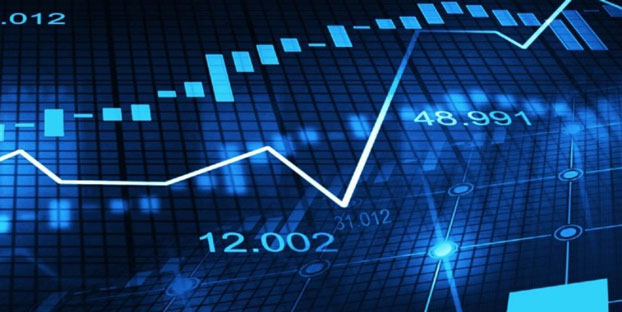How do sovereign ratings work?
Dec 22, 2023 By Susan Kelly
Upon request, a credit rating agency will evaluate a country's political and economic situation to assign a rating. A solid sovereign credit rating is often necessary for emerging nations to access financing on the international bond markets.
Independent Assessment
A sovereign credit rating is an independent assessment of a country's creditworthiness or other sovereign body.
Investors use ratings of sovereign credit to assess the riskiness of a country's bonds.
BBB- or above ratings are given to nations that Standard & Poor's deems investment grade; BB+ or below ratings are given to speculative or "junk" grade nations.
According to Moody, investment grade is categorized as having a rating of Baa3 or higher, whereas speculative is categorized as having a rating of Ba1 or lower.
An overview of sovereign credit ratings
A common way for countries to obtain a sovereign credit rating is to attract foreign direct investment and issue bonds on external debt markets (FDI). Several countries ask the largest and most reputable credit rating agencies to provide ratings to increase investor trust. Standard & Poor's, Moody's, and Fitch Ratings are the three most important companies.
Japan Credit Rating Agency, China Chengxin International Credit Rating Company, Dagong Global Credit Rating, and DBRS are additional well-known credit rating agencies (JCR). Subdivisions of countries occasionally issue their sovereign bonds, which also require ratings. However, a lot of organizations do not take into account smaller states, provinces, or municipalities.
Credit risk for sovereigns
Indicated by sovereign credit ratings, sovereign credit risk is the possibility that a government won't be able to or won't want to honor its debt obligations in the future. Many crucial factors determine how risky investing in a specific country or area might be. They include the nation's debt service ratio, increase in the domestic money supply, revenue from imports to exports, and debt service ratio.
Following the 2008 financial crisis, various nations experienced increased sovereign credit risk, which sparked discussions on the necessity of bailing out entire nations worldwide. Other countries asserted that the credit rating agencies simultaneously lowered their debt too hastily. The rating systems' "issuer pays" rating scheme, in which countries pay the organizations to rate them, was also criticized. Investors paying for the ratings would prevent these conflicts of interest from occurring.
Examples of sovereign credit ratings
According to Moody, investment grade is categorized as having a rating of Baa3 or higher, whereas speculative is categorized as having a rating of Ba1 or lower. Greece received a B1 rating from Moody's in 2019, while Italy received a Baa3 rating. In addition to their letter grades, these three organizations provide a one-word assessment of each country's current economic outlook: positive, negative, or constant.
Sovereign Credit Ratings For The Eurozone
The European debt crisis, which also led to Greece's default on its debt, prompted a drop in credit ratings for many European nations. The national currencies of various sovereign nations in Europe were replaced by the single European currency, the euro. Their sovereign debt is no longer based on their domestic currencies. Eurozone members cannot "create money" through their respective national central banks to avoid defaults. The euro enhanced trade amongst its members but raised certain members' default risks and decreased numerous national credit ratings.
The Complete Web3-Enabled Digital Wallet
Accessing a range of DeFi platforms, from crypto to NFTs and beyond, is simpler than you think. With the aid of OKX, a leading supplier of financial services for digital assets, you can trade and store assets while enjoying top-notch security. You can also connect your current wallets and win up to $10,000 when you deposit more than $50 via a bitcoin buy or top-up within 30 days of signing up. Discover more and sign up right away.
What Sovereign Credit Ratings Mean
Sovereign credit ratings are essential for countries seeking financing on the international bond market. At the government's request, a credit rating agency will often evaluate a country's political and economic situation and offer ratings ranging from AAA to grade D.
Sovereign credit rating influences
Credit rating agencies use qualitative and quantitative methodologies to calculate a country's sovereign credit rating. According to the 1996 article "Determinants and Impacts of Sovereign Credit Ratings" by Richard Cantor and Frank Packer, there are several explanations for the differences in credit ratings provided by the major rating agencies.
-
 FinTech Sep 12, 2024
FinTech Sep 12, 2024The Future of Search: OpenAI Introduces SearchGPT
Discover how OpenAI's latest innovation, SearchGPT, is poised to revolutionize the search engine landscape with advanced AI technology, offering a new way to find information online
-
 Mortgages Oct 10, 2023
Mortgages Oct 10, 2023Hire Purchase: An Overview
When you buy a vehicle via hire purchase, you make a down payment followed by regular payments over a certain amount of time to cover the remaining purchase price balance. Learn more about how to hire buy works so that you can choose whether or not it is the best kind of financing for you.
-
 FinTech Sep 12, 2024
FinTech Sep 12, 2024How GE HealthCare and AWS are Transforming Medical Diagnostics with Generative AI
How GE HealthCare and Amazon Web Services are collaborating to develop generative AI tools aimed at transforming medical diagnostics and patient care
-
 Know-how Dec 12, 2023
Know-how Dec 12, 2023Most Common Myths About Financial Advisors
Many myths and misconceptions about financial advisors can make people hesitant to seek professional help. However, by debunking these myths and understanding what financial advisors can do for you, you can make an informed decision about whether or not to work with one. Remember, financial advisors can provide valuable guidance on everything from investing to retirement planning and can help you achieve your financial goals over the long term


